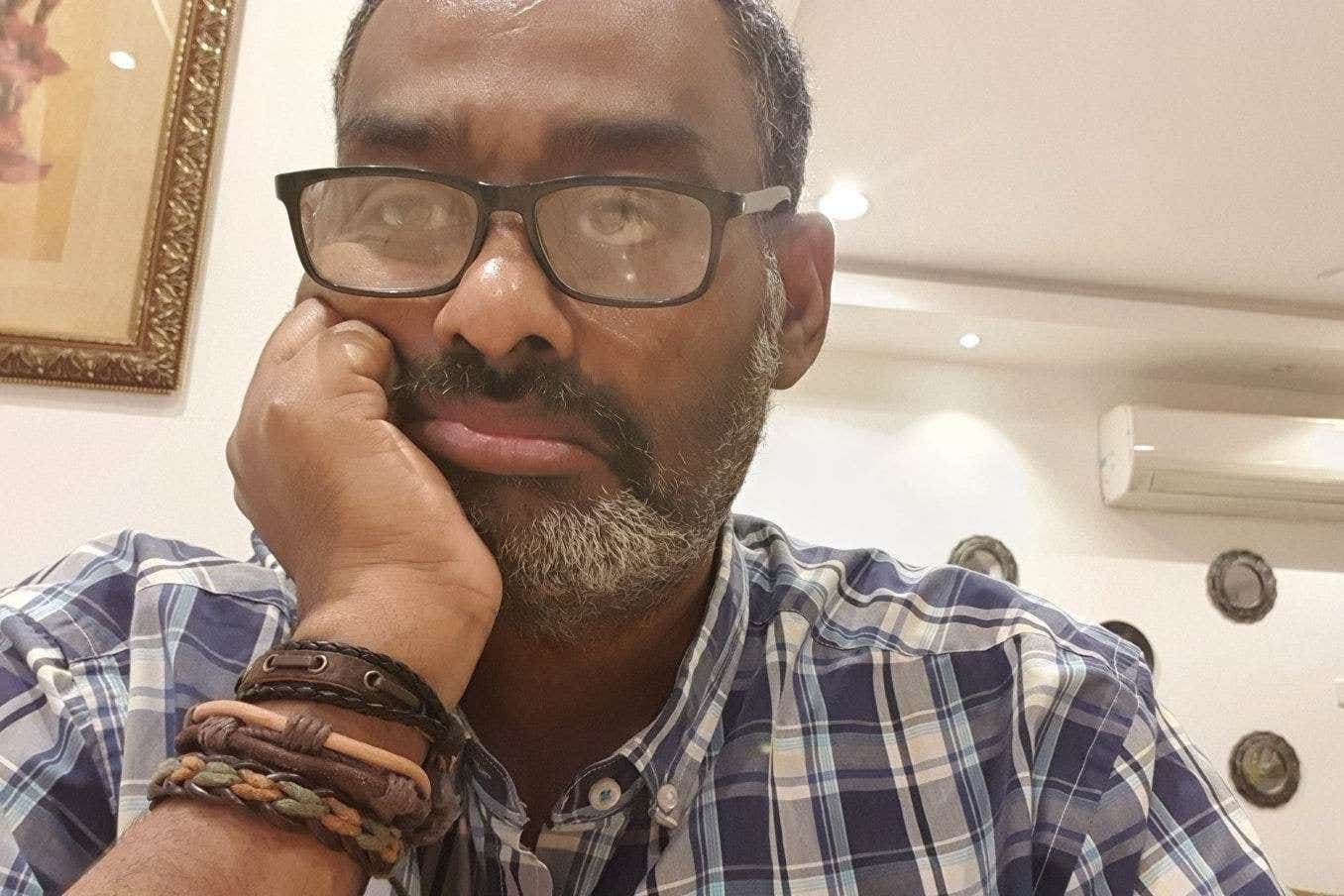‘No clarity’ in Sudan evacuation plans, says British national in Khartoum
Nadir Omara had been in the city for Eid celebrations when the fighting broke out.

Your support helps us to tell the story
From reproductive rights to climate change to Big Tech, The Independent is on the ground when the story is developing. Whether it's investigating the financials of Elon Musk's pro-Trump PAC or producing our latest documentary, 'The A Word', which shines a light on the American women fighting for reproductive rights, we know how important it is to parse out the facts from the messaging.
At such a critical moment in US history, we need reporters on the ground. Your donation allows us to keep sending journalists to speak to both sides of the story.
The Independent is trusted by Americans across the entire political spectrum. And unlike many other quality news outlets, we choose not to lock Americans out of our reporting and analysis with paywalls. We believe quality journalism should be available to everyone, paid for by those who can afford it.
Your support makes all the difference.A British national sheltering in Khartoum has said there is currently “no clarity” in the Government’s plans to evacuate those stuck in Sudan.
Nadir Omara, 56, a consultant psychiatrist who usually works in Madani, south of the capital, had travelled to Khartoum to celebrate Eid with friends and family on April 13, two days before fighting broke out.
The Government has launched an operation to help around 2,000 citizens flee the ongoing conflict following a 72-hour ceasefire agreed by the warring factions.
Mr Omara, currently staying in a flat near to Al Siteen Street, one of the city’s main roads, told the PA news agency: “You have to bear in mind that the communications are very intermittent (and) haphazard – sometimes they do work, sometimes they don’t.”
“I have already sent an email to the local MP, (Foreign Secretary) James Cleverly and (Prime Minister) Rishi Sunak that we need more guidance.
“The numbers for the embassy or consulate services weren’t reachable, so we had to rely on watching the news and services here. That’s very difficult.
“I did get an email today (Tuesday) about the evacuation (but) there’s no clarity as to how that is going to be conducted, other than the priority is for the elderly and people with families.”
Mr Omara moved to Sudan in late 2020 for work, with his wife Azza and two daughters remaining at their home in Ipswich, Suffolk.
His mother, mother-in-law, sister and brother were scattered in different locations across Khartoum, but are now waiting for a bus to take them to the Egyptian border.
“One of my concerns is having to face my daughters (after) travelling back to the UK, and having to tell them that their grandmothers were left behind and I don’t know what’s going to happen to them,” he said.
Despite the evacuation announcements, though, Mr Omara is remaining in Khartoum for the time being.
He said: “I’m staying put – I haven’t been out since the fighting started, and I can only go by the advice of the FCO (Foreign & Commonwealth Office) to stay safe.
“I think I’ve got enough food for another three or four days, so hopefully by then most have managed to be evacuated. But things are getting very scarce.”
He explained the evacuation also represented a moral dilemma personally, as he wants to help his hospital patients who continue to call him.
“I just put the phone down. It was a courtesy call from the father of one of my patients.
“He actually offered me sanctuary and free accommodation in a town near to Madani. I kindly declined but it left me pondering whether it’s right to leave – am I abandoning them?”
He added: “This is a country that cannot tolerate any further setbacks. The people here cannot tolerate any more hardship – it’s hard as it is.”